The Jealousy Man and Other Stories Read online
Page 2
After the stewardess had turned off the service light and disappeared, you kicked off your shoes and stretched out a pair of narrow, nylon-clad ankles that made me think of the ballet.
‘The suicide agency has very impressive offices in Manhattan,’ you said. ‘It’s a law firm, they claim that everything is legal and above board, and I don’t doubt it. For example, they won’t take the life of anyone who is mentally disturbed. You have to submit to a thorough psychiatric examination before signing the contract. And you also have to cancel any insurance policies you might have so that they can’t be sued by insurance companies. There are a lot of other conditional clauses too, but the most important is the confidentiality clause. In the USA the rights of two adult parties voluntarily to enter into an agreement go further than in most other countries; but if their practice became known, and there was publicity, they are, of course, afraid that the response would lead politicians to put a stop to them anyway. They don’t advertise their services, their clients are exclusively wealthy people who learn of their existence word-of-mouth.’
‘Well then, yes, I can see why they would want to keep a low profile.’
‘And their clients obviously require discretion; there’s something shameful about suicide, after all. Like abortion. Abortion clinics don’t operate illegally, but they don’t exactly advertise their business over the main entrance.’
‘That’s true.’
‘And of course, discretion and shame are what lie behind the whole business concept. Their clients are willing to pay large sums of money to be eliminated in a way that is physically and psychologically as pleasant and unexpected as possible. But the most important thing of all is that it happens in such a way that neither family, friends nor the world at large have any reason at all to suspect suicide.’
‘And how do they manage that?’
‘We’re never told, of course. Only that there are countless ways, and that it will happen within three weeks of the contract being signed. We’re not given any examples either, because that way we would, consciously or not, avoid certain situations, and that would generate an unnecessary degree of fear. All we are told is that it will be completely painless, and that we really won’t see it coming.’
‘I can understand why it’s important for some people to hide the fact that they’ve taken their own lives, but why is it for you? On the contrary, wouldn’t it be a way of taking your revenge?
‘On Robert and Melissa you mean?’
‘If you died in a way that was obviously suicide it wouldn’t just be about shame. Robert and Melissa would blame themselves, and also more or less consciously blame each other. This is something we see time and time again. Have you ever, for example, studied the divorce rate among parents of children who have taken their own lives? Or the figures for suicide among the parents?’
You just looked at me.
‘I’m sorry,’ I said and felt myself turning a little red. ‘I’m imputing a desire for revenge to you simply because I’m sure that’s what I would have felt myself in your position.’
‘You think you showed yourself up there, Shaun.’
‘Yes.’
You gave a brief, hard laugh. ‘That’s all right, because of course I want revenge. But you don’t know Robert and Melissa. If I were to kill myself and leave a note in which I said it was because Robert was unfaithful, he would of course deny it. He would point out that I had been treated for depression, which is true, and that towards the end I had also clearly developed paranoia. He and Melissa have been very discreet, so perhaps no one knows about them. I would guess that for about six months after the funeral, for the sake of appearances, she would date one of the other finance guys in Robert’s circle. They all drool over her, and she’s always got away with being the cockteaser she is. And after that she and Robert would announce they were a couple and explain that what brought them together was a shared grief over my death.’
‘OK, you’re probably even more of a misanthropist than me.’
‘I don’t doubt it. And the really nauseating thing is that deep down, Robert would feel a certain pride.’
‘Pride?’
‘Over the fact that a woman didn’t want to live if she couldn’t have him all to herself. That’s how he would look at it. And that’s how Melissa would look at it too. My suicide would raise his stock even higher and end up making them happier.’
‘You believe that?’
‘Sure I do. Aren’t you familiar with René Girard’s theory about mimetic desires?’
‘No.’
‘Girard’s theory is that beyond satisfying our basic needs we don’t know what it is we want. So we mimic our surroundings, we value what other people value. If enough people around you say Mick Jagger is sexy, you’ll end up wanting him yourself, even if in the first place you think he looks awful. If Robert’s stock goes up because of my suicide, Melissa will want him even more, and they’ll be even happier together.’
‘I understand. And if it looks as though you died in an accident or died some other form of natural death?’
‘Then it has the opposite effect. I become the one whom chance or fate took. And Robert will think differently about my death and about me as a person. Slowly but distinctly I’ll develop a saintly aura. And when the day comes when Melissa starts to annoy Robert – and she will – he’ll just remember all the good things about me and miss what we had together. I wrote him a letter two days ago telling him I’m leaving him because I need to be free.’
‘Does that mean he doesn’t know that you know he’s been messing about with Melissa?’
‘I’ve read all their text messages on his phone and never said a word to anyone before now, before you.’
‘And the purpose of the letter?’
‘In the beginning he’ll feel it’s a relief not to have to be the one who leaves. It’ll save him money in the divorce settlement and leave him looking like the good guy, even if he does hook up with Melissa shortly afterwards. But after a while the seed planted in that letter will grow. That I left him to be free, yes. But also because I must have thought I could meet someone better than him. That there might even have been someone even before I left. Someone who wanted me. And as soon as Robert thinks that…’
‘…that means you’re the one with the mimetic desires. And that’s why you went to the suicide agency.’
You shrugged. ‘So then what is the divorce rate among the parents of children who take their own lives?’
‘What?’
‘And which parent is it that takes their own life? The mother, am I right?’
‘Well, you tell me,’ I said, fixing my gaze on the back of the seat in front of me. But I could feel your eyes on me as you waited for a more detailed answer.
I was rescued by the arrival of two glasses that appeared as if by magic from the darkness and landed on the armrest between us.
I coughed. ‘Isn’t it intolerable to have to wait so long? Wake up every morning and think, perhaps today I’ll be murdered?’
You hesitated; you didn’t want to let me off that easily. But in the end you let it go and answered: ‘Not if the thought that perhaps today I won’t be murdered feels worse. Even if, naturally, we are sometimes overcome by panic about dying, and a survival instinct we never asked for, the fear of dying is no greater than the fear of living. But that’s something that you as a psychologist are familiar with.’ You put a slightly exaggerated stress on psychologist.
‘True enough,’ I said. ‘But studies have been made into nomadic tribes in Paraguay where the tribal council decides that someone has grown so old and weak that they’ve become a burden to the tribe and have to be killed. The person in question doesn’t know either when or how it’s going to happen, but they accept that that’s the way things are. After all, the tribe has managed in an environment with little food and long, arduous wandering because t
hey sacrificed the weak so they can take care of the healthy and ensure that the tribe survives. Maybe in their younger days those now under sentence of death themselves had to swing the club over the head of some frail old great-aunt one dark evening outside the cabin. And yet the research shows that for the members of the tribe the uncertainty creates a high level of stress and that in itself is a probable cause of the short life expectancy among these tribes.’
‘Of course there’s stress,’ you said, yawning as you stretched your stockinged foot so that it touched my knee. ‘I would have preferred it to take less than three weeks, but I presume it takes time to find the best and most secure method. For example, if it’s to look like an accident and at the same time be painless, that probably requires a lot of careful planning.’
‘Do you get your money back if this plane goes down?’ I asked and took a sip of the gin and tonic.
‘No. They said that because their expenses are so high for each client, and the clients are, after all, suicidal, they have to insure themselves against the client getting in before them, intentionally or not.’
‘Hm. So, at most you have twenty-one days left to live.’
‘Soon just twenty and a half.’
‘Right. And what do you intend to do with them?’
‘Do what I’ve never done before. Talk and drink with strangers.’
You emptied your glass in one long swallow. And my heart began to pound as though it knew already what was going to happen. You put the glass down and laid a hand on my arm. ‘And I want to make love with you.’
I had no idea how to respond.
‘I’m going to the toilet now,’ you said. ‘If you follow in two minutes, I’ll still be there.’
I felt something happen. An inner rejoicing that wasn’t merely desire, but something affecting my whole body, a feeling of being reborn I had not had in a long, long time, and, if the truth be known, I had never expected to feel again. You had positioned the palms of your hands on the armrests as though about to rise from the seat, but you remained seated.
‘I guess I’m not that tough,’ you sighed. ‘I need to know whether you’re actually coming.’
I took another sip to give me a moment. She looked at my glass as she waited.
‘What if I have someone?’ I said, and could hear that my voice sounded hoarse.
‘But you don’t.’
‘What if I don’t find you attractive? Or I’m gay?’
‘Are you afraid?’
‘Yes. Women who take the sexual initiative frighten me.’
You studied my face as though searching for something. ‘OK,’ you said. ‘I’ll buy that. I’m sorry, it really isn’t my style, but I don’t have time to pussyfoot around. So what are we going to do?’
I could feel myself calming down. My heart was still beating too fast, but the panic and the instinct for flight were gone. I turned the glass in my hand. ‘Do you have a connecting flight from London?’
You nodded. ‘Reykjavik. It leaves an hour after we land. What were you thinking of?’
‘A hotel in London.’
‘Which one?’
‘The Langdon.’
‘The Langdon’s good. If you stay there more than twenty-four hours the staff know your name. Unless they suspect it’s an illicit affair, in which case their memories are Teflon-coated. But anyway, we won’t be staying there more than twenty-four hours.’
‘You mean…’
‘I can rebook the Reykjavik flight for tomorrow.’
‘Are you sure?’
‘Yes. Does that please you?’
I thought about it. I wasn’t pleased. ‘But what if…’ I began, but then stopped.
‘Are you worried they might do it while you’re with me?’ you asked, and chinked your glass brightly against mine. ‘That you find yourself with a corpse on your hands?’
‘No.’ I smiled. ‘I mean, what if we fall in love? And you’ve signed a contract saying you want to die. An unbreakable contract.’
‘It’s too late,’ you said, and laid your hand over mine on the armrest.
‘Yes, that’s what I’m saying.’
‘No, I mean the other thing is too late. We’ve already fallen in love.’
‘Have we?’
‘A bit. Enough.’ You squeezed my hand, stood up and said you would be back in a moment. ‘Enough for me to be glad I have maybe three weeks.’
While you were away in the toilet the stewardess came by and took our glasses and I asked if we could have two extra pillows.
When you came back you had put fresh make-up on.
‘It’s not for you,’ you said, clearly reading my thoughts. ‘You liked the way it was a bit smeared, didn’t you?’
‘I like it both ways,’ I said. ‘So then who is the make-up for?’
‘Who do you think?’
‘For them?’ I asked and nodded in the direction of the cabin.
You shook your head. ‘I recently commissioned a survey in which the majority of women asked replied that they wore make-up to feel good. But what do they mean by good? Is it just the absence of feeling uncomfortable? Uncomfortable at being seen as they really are? Is make-up really just our own self-imposed version of a burka?’
‘Isn’t make-up used as much to accentuate as to hide?’ I asked.
‘You accentuate something and you hide something else. All editing – at the same time as it clarifies – involves a cover-up. A woman applying make-up wants to attract attention to her lovely eyes so that no one notices her nose is much too big.’
‘But is that a burka? Don’t we all want to be seen?’
‘Not all. And no one wants to be seen as they really are. Incidentally, did you know that in the course of a lifetime a woman spends as much time putting on make-up as the entire duration of conscription for men in countries like Israel and South Korea?’
‘No, but that sounds like a comparison involving a random collection of information.’
‘Exactly. But not involving a random collection.’
‘Oh no?’
‘The comparison is one chosen by me and naturally, it is, in itself, a valid observation. Fake news doesn’t necessarily mean fake facts, it can involve manipulative editing. What does the comparison tell you about my view of sexual politics? Am I saying that men have to serve their country and risk their lives while women prefer to beautify themselves? Maybe. But a little verbal editing is all it would take for that same comparison to show that women are as afraid of being seen as they really are as nations are of being conquered by enemy forces.’
‘Are you a journalist?’ I asked.
‘I edit a magazine that isn’t worth the paper it’s printed on.’
‘It’s a woman’s magazine?’
‘Yes, and in the worst possible sense of those words. Do you have any baggage?’
I hesitated.
‘I mean, when we land in London, can we take a taxi straight away?’
‘Just hand baggage,’ I said. ‘You still haven’t told me why you put on make-up?’
She lifted a hand and stroked my cheek with her index finger, just under my eye, as though I too had been crying.
‘Here’s another comparison involving random facts,’ she said. ‘More people die every year from suicide than from war, terrorism, crimes of passion, in fact all murders, combined. Beyond any doubt, you are the most likely murderer of yourself. That’s the reason I put on make-up. I looked in the mirror and could not bear the sight of the naked face of my own killer. Not now that I’m in love.’
We looked at each other. And as I raised my hand to take hers she took mine. Our fingers intertwined.
‘Isn’t there something we can do?’ I whispered, suddenly breathless, as though I were already running. ‘Can’t we buy you out of this contract?’
Sh
e put her head on one side, as though to observe me from another angle. ‘If it were possible, then it’s not certain we would have fallen in love,’ she said. ‘The fact that we are unobtainable for each other is an important part of the attraction, don’t you think? Did she die too?’
‘What?’
‘The other one. The one you wouldn’t talk about when I asked if you had a wife and children. The kind of loss that leaves you afraid to fall in love again with someone you’re going to lose. The thing that made you hesitate when I asked if you have any baggage. Do you want to talk about it?’
I looked at you. Did I?
‘Are you sure you want to…?’
‘Yes, I want to hear,’ you said.
‘How long do you have?’
‘Ha ha.’
We ordered another round of drinks and I told my story.
When I was finished it was already growing light outside the window, because we were flying towards the sun, towards a new day.
And you wept again.
‘That’s so sad,’ you said, and laid your head against my shoulder.
‘Yes,’ I said.
‘Does it still hurt?’
‘Not all the time. I tell myself that since she didn’t want to live, then the choice she made was probably better.’
‘Do you believe that?’
‘You believe it too, don’t you?’
‘Maybe,’ you said. ‘But I really don’t know. I’m like Hamlet, a doubter. Maybe the kingdom of death is even worse than the vale of tears.’
‘Tell me about yourself.’
‘What do you want to know?’
‘Everything. Just begin, and where I want to know more, I’ll ask.’
‘OK.’
You told your story. And the picture of the girl gradually revealed was even clearer than that of the person who sat leaned into me, her hand beneath my arm. At one point a pocket of turbulence shook the aircraft. It was like riding across a series of small, sharp waves and gave your voice a comic vibrato that made us both laugh.

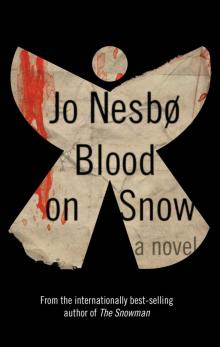 Blood on Snow: A novel
Blood on Snow: A novel Police: A Harry Hole thriller (Oslo Sequence 8)
Police: A Harry Hole thriller (Oslo Sequence 8) Doctor Proctor's Fart Powder: The Great Gold Robbery
Doctor Proctor's Fart Powder: The Great Gold Robbery Bubble in the Bathtub
Bubble in the Bathtub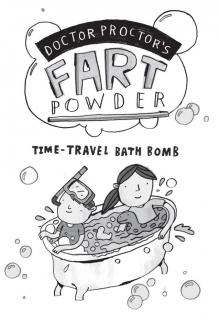 Doctor Proctor's Fart Powder: Time-Travel Bath Bomb
Doctor Proctor's Fart Powder: Time-Travel Bath Bomb The Bat
The Bat Doctor Proctor's Fart Powder: The End of the World. Maybe.
Doctor Proctor's Fart Powder: The End of the World. Maybe.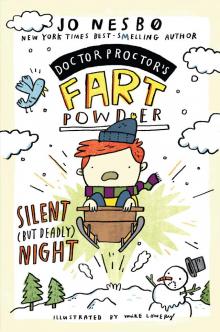 Silent (but Deadly) Night
Silent (but Deadly) Night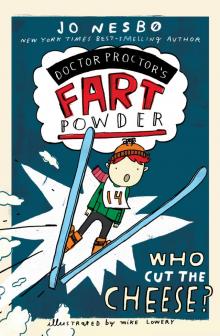 Who Cut the Cheese?
Who Cut the Cheese? Headhunters
Headhunters The Jealousy Man and Other Stories
The Jealousy Man and Other Stories Harry Hole Mysteries 3-Book Bundle
Harry Hole Mysteries 3-Book Bundle The Thirst
The Thirst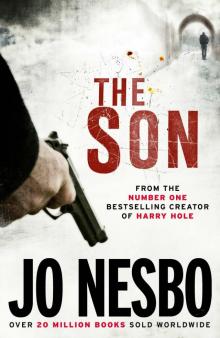 The Son
The Son The Redeemer
The Redeemer The Kingdom
The Kingdom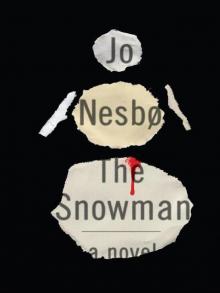 The Snowman
The Snowman The Redbreast
The Redbreast Phantom
Phantom Macbeth
Macbeth The Leopard
The Leopard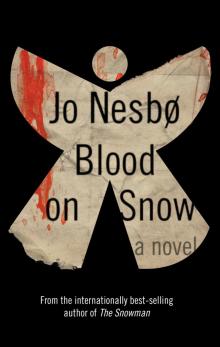 Blood on Snow
Blood on Snow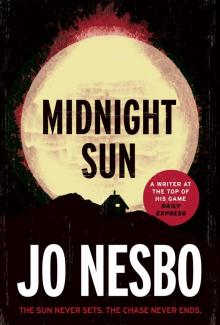 Midnight Sun
Midnight Sun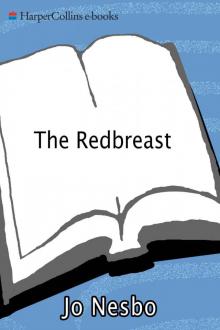 The Redbreast (Harry Hole)
The Redbreast (Harry Hole) The Devil's Star
The Devil's Star Cockroaches
Cockroaches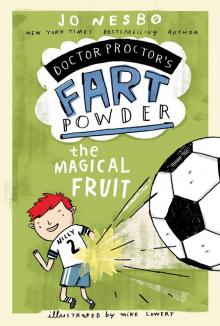 The Magical Fruit
The Magical Fruit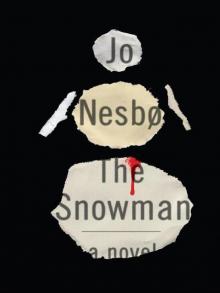 The Snowman: A Harry Hole Novel
The Snowman: A Harry Hole Novel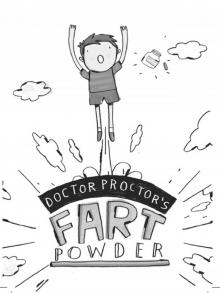 Doctor Proctor's Fart Powder
Doctor Proctor's Fart Powder The Cockroaches
The Cockroaches Knife
Knife Phantom hh-9
Phantom hh-9 The Redbreast hh-3
The Redbreast hh-3 The Redeemer hh-6
The Redeemer hh-6 The Leopard hh-8
The Leopard hh-8 The Leopard: An Inspector Harry Hole Novel
The Leopard: An Inspector Harry Hole Novel The Great Gold Robbery
The Great Gold Robbery Police hh-10
Police hh-10 The End of the World. Maybe
The End of the World. Maybe The Thirst: Harry Hole 11
The Thirst: Harry Hole 11 Nemesis - Harry Hole 02
Nemesis - Harry Hole 02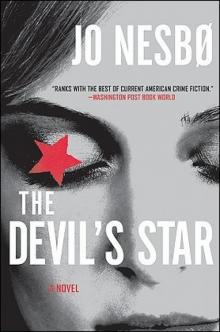 The Devil's star hh-5
The Devil's star hh-5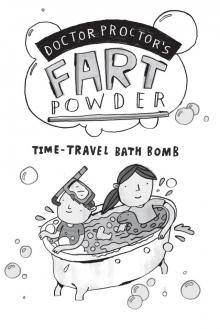 Time-Travel Bath Bomb
Time-Travel Bath Bomb